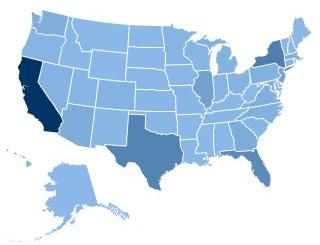Published on Sun, Dec 11, 2011
CHARLESTON, SOUTH CAROLINA: In October, the U.S. Department of Justice challenged South Carolina's immigration law in federal court, charging that parts of the law are "unconstitutional and interfere with the federal government's authority to set and enforce immigration policy."
In April, the Justice Department succeeded in blocking some provisions of the newly enacted Arizona immigration law, and in October, some of Alabama's controversial provisions were temporarily blocked. Last month, the federal government sued Utah.
"A patchwork of immigration laws is not the answer and will only create further problems in our immigration system," Attorney General Eric Holder said in a statement Nov. 22. "The federal government is the chief enforcer of immigration laws, and while we appreciate cooperation from states, which remains important, it is clearly unconstitutional for a state to set its own immigration policy."
South Carolina officials, including Gov. Nikki Haley, echoing the concerns of leaders in other states, say that local authorities cannot wait any more for the federal government to institute comprehensive immigration reform and must act now to secure borders and protect citizens and legal residents.
"If the Feds were doing their job, we wouldn't have had to address illegal immigration reform at the state level," Haley spokesman Rob Godfrey said recently.
The Obama administration has ramped up deportation actions.
About 1.1 million illegal immigrants have been deported since the beginning of 2009, and the Department of Homeland Security is dealing with a backlog of about 300,000 cases. By comparison, a total of 1.57 million were deported during President George W. Bush's two terms.Read more...
Published in the Post and Courier



